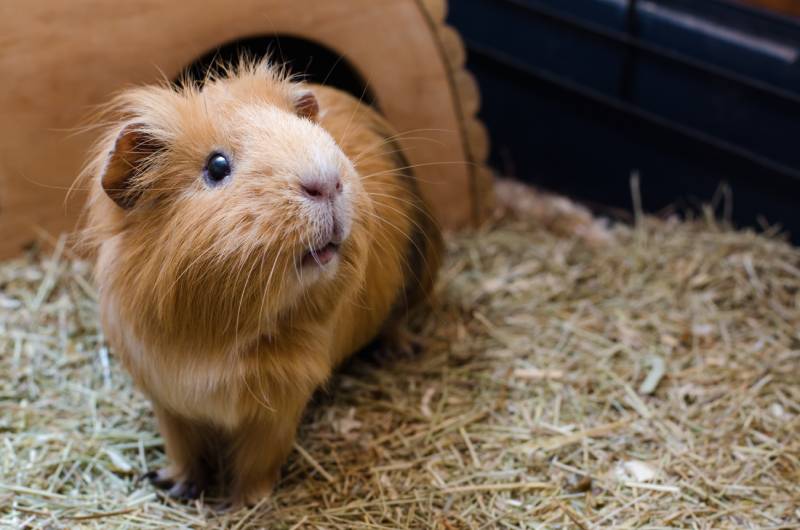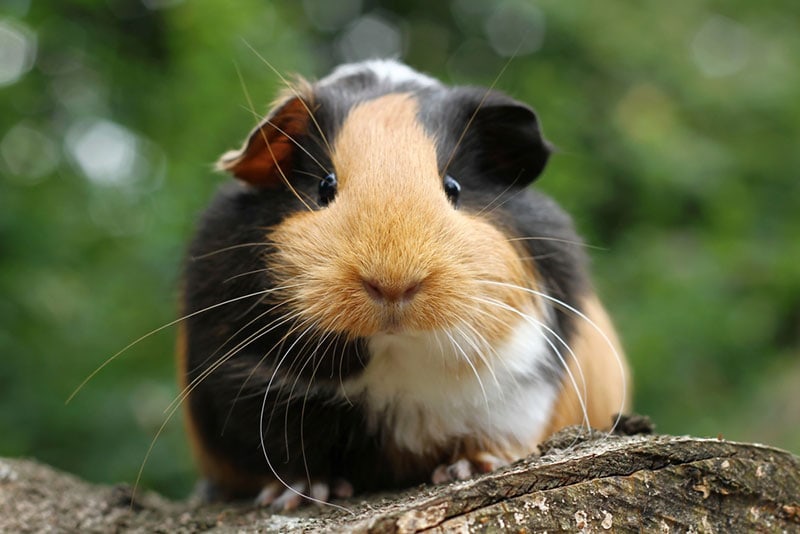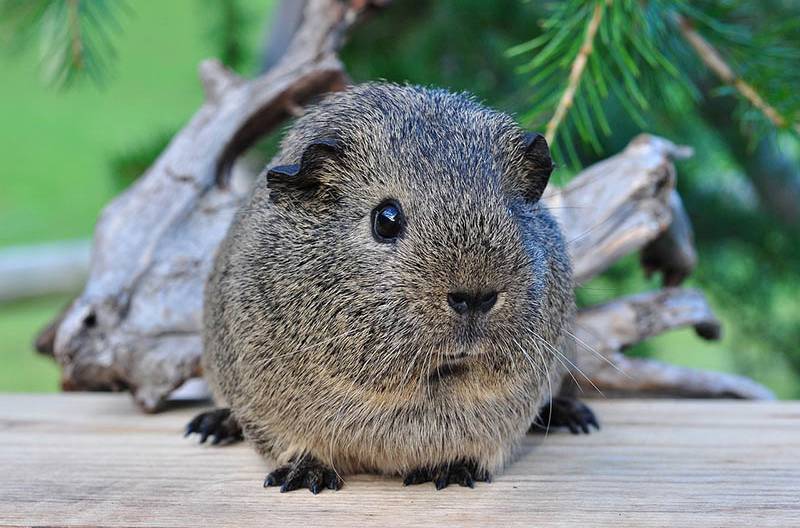Why Do Guinea Pigs Popcorn? 5 Reasons for the Jumping Behavior

Updated on

If you’ve ever observed your guinea pig jumping up and down in a peculiar manner, you’ve witnessed what’s known as “popcorning”. This behavior is unique to guinea pigs and is a sign of joy or excitement. Understanding why guinea pigs popcorn can not only give you insights into their behavior but also help you ensure they’re leading a content life.
Understanding the Basics of Popcorning
Popcorning is a unique behavior exhibited by guinea pigs when they’re feeling particularly happy or excited. It’s one of the many ways these adorable creatures express their emotions and interact with their environment.
Popcorning in guinea pigs is a unique behavior where they make sudden, popcorn-like jumps. The name “popcorning” comes from the way popcorn kernels pop and jump when heated. Similarly, when a guinea pig is particularly excited or happy, they display this burst of energy by hopping around their cage, resembling a popping kernel of corn.
This behavior is more common in young guinea pigs, although adults can exhibit it too. Young guinea pigs, known as pups, often have more energy and are more curious about their surroundings, leading to frequent popcorning episodes. However, don’t be surprised if you see adult guinea pigs popcorning. While it might not be as frequent, adults will still popcorn when they’re particularly joyful or excited.
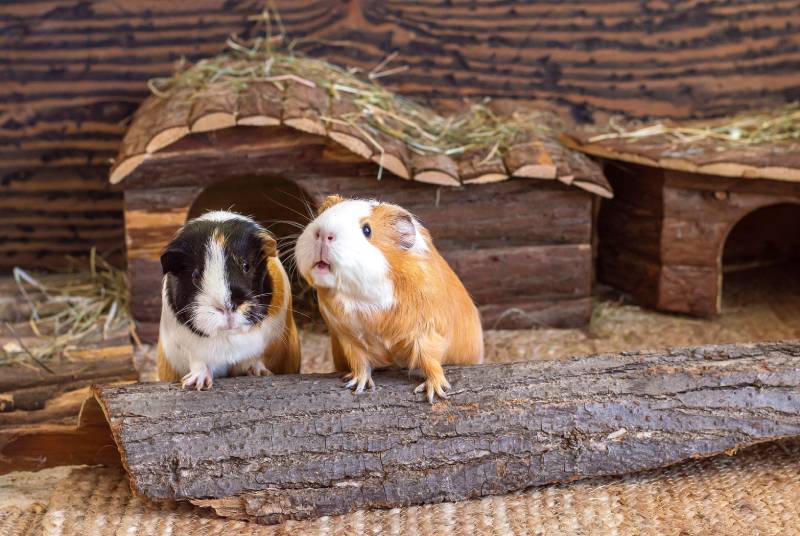
The 5 Main Reasons Behind Popcorning
Guinea pigs popcorn for a variety of reasons, all of which are linked to positive feelings or experiences. Understanding why your guinea pig is popcorning can help you better meet their needs and ensure they’re living a joyful life.
1. Joy and Excitement
Popcorning is a clear sign of joy and happiness in guinea pigs. It often occurs when these adorable pets are feeling excited, content, or particularly playful. If your guinea pig has enough space to move around and feels secure, you can expect to see more of this delightful behavior. It’s their unique way of expressing an overflow of positive emotions.
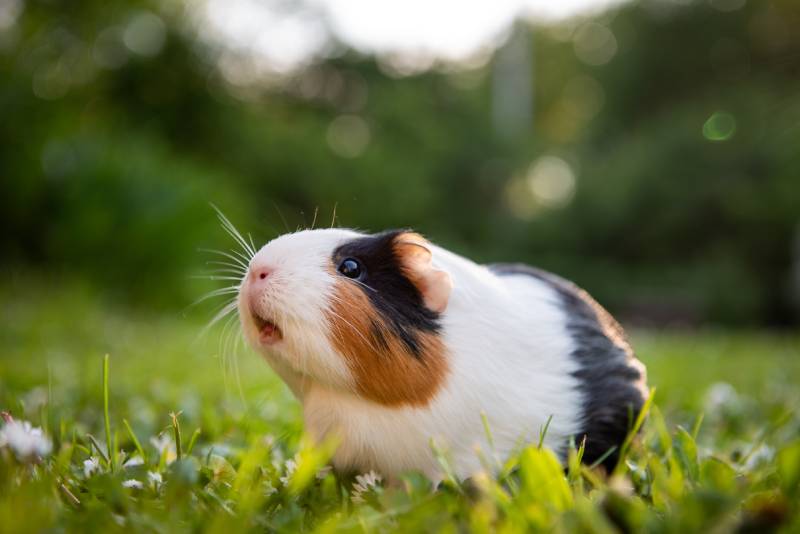
2. Reaction to New Environment or Toys
Guinea pigs are curious creatures by nature. When introduced to a new environment or toy, they often express their excitement through popcorning. This could be a new cage setup, a different location, or a fun new toy. Their popcorning is a sign that they’re eager to explore and interact with their new surroundings or items.
3. During Playtime
Popcorning can also be a part of play behavior among guinea pigs. When they’re engaged in play, whether it’s chasing each other around or interacting with toys, they might popcorn out of sheer joy. It’s a fun, energetic addition to their playtime antics that shows they’re having a good time.
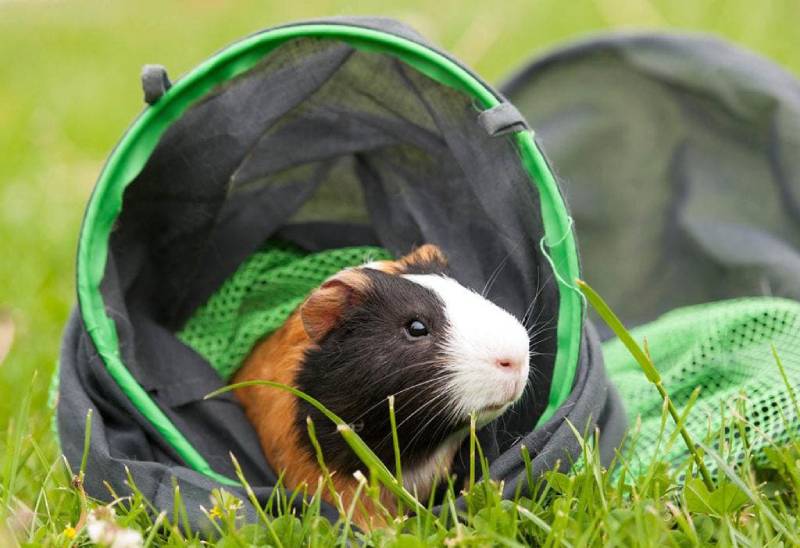
4. Social Behavior
Sometimes, guinea pigs popcorn as a social behavior when interacting with other guinea pigs. Living in groups, guinea pigs use a variety of behaviors and sounds to communicate with each other. Popcorning can be a way for them to express their excitement and invite others to join in the fun. It can also be a response to seeing other guinea pigs popcorn, creating a ripple effect of joyous hopping.
5. Response to Human Interaction
Guinea pigs may popcorn in response to positive interactions with their human caregivers. This could be during petting sessions, when they hear your voice, or when you’re about to feed them their favorite treat. Popcorning in response to your presence signals that they associate you with positive experiences and feel comfortable and happy around you. It’s one of the most rewarding aspects of being a guinea pig owner, seeing your furry friend express their joy so visibly.
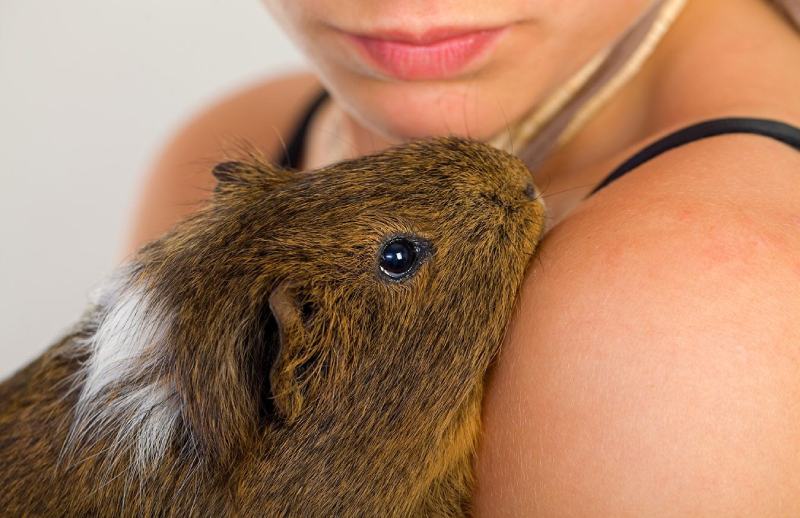
 Variations in Popcorning
Variations in Popcorning
Just like humans, every guinea pig has its own personality and style. Some guinea pigs twist their bodies when they popcorn, adding a little flair to their jumps. Others prefer a simple, straight-up jump, reaching impressive heights with their tiny bodies. Observing these variations can give you insights into your pet’s unique character.
Popcorning might look like a quick hop or a full-blown leap in the air, depending on the guinea pig and their level of excitement. It’s a sudden, energetic movement that can sometimes take new guinea pig owners by surprise. But rest assured, it’s a normal and healthy behavior that indicates your pet is feeling happy and playful.
Along with the physical act of jumping, some guinea pigs may make excited squeaks or other noises while popcorning. These sounds are another way they express joy and excitement. Each guinea pig has its own unique voice and way of expressing themselves, so the sounds can vary. Some might make high-pitched squeaks, while others might emit softer coos. Listening to these sounds can help you better understand your pet’s emotions and responses to their environment.
Possible Health Implications of Popcorning
While popcorning is generally a sign of a healthy, happy guinea pig, it’s important to keep an eye on this behavior as changes could indicate potential health issues. Regular observation can help you identify any problems early on.
Indicator of Well-Being
Regular popcorning is a good sign that your guinea pig is healthy and happy. This behavior is an expression of joy and contentment, which indicates your pet feels safe and comfortable in their environment. If your guinea pig is frequently popcorning, it’s a great sign that you’re providing the right care and environment for them to thrive.
Link to Stimulation
A stimulated guinea pig is more likely to popcorn, indicating that they are engaged with their environment. This could be due to a variety of factors, such as new toys, playtime, or interaction with their human caregivers. The more stimulated and interested your guinea pig is in their surroundings, the more likely they are to display their happiness through popcorning.
When Popcorning Indicates Over-Excitement
While popcorning is generally a positive behavior, excessive popcorning could potentially lead to injuries due to over-activity. It’s important to monitor your guinea pig’s behavior and ensure they also have time for rest and relaxation. If they seem overly excited and are constantly popcorning, it might be worth checking their environment for any stressors that could be causing this behavior.
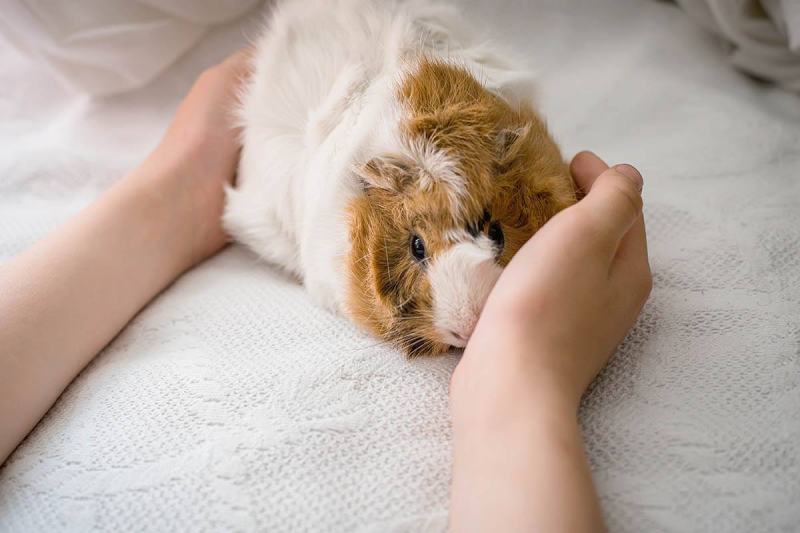
Health Issues and Lack of Popcorning
If your guinea pig stops popcorning altogether, it might indicate health issues or discomfort. Changes in behavior can often be the first sign of potential health problems. If your usually active and happy guinea pig suddenly stops popcorning, it’s advisable to monitor them closely and consult a vet if necessary.
Sudden Changes in Popcorning
Any sudden increase or decrease in popcorning should be noted and possibly discussed with a vet. While changes in behavior can be normal, drastic changes could potentially indicate a problem. It’s always better to be safe and consult a professional if you notice anything unusual about your pet’s behavior.
 How to Encourage Popcorning
How to Encourage Popcorning
Creating a stimulating and comfortable environment for your guinea pig can encourage more popcorning. This includes providing plenty of toys, a large space to explore, and regular bonding time. Remember, a happy guinea pig is more likely to popcorn!
Creating a Stimulating Environment
To encourage popcorning, it’s essential to provide a variety of safe toys that will keep your guinea pig stimulated. These could include tunnels, chew toys, or balls. The more interested and engaged they are with their toys, the more likely they are to express their happiness through popcorning. Remember to rotate these toys regularly to maintain their interest.
Bonding Time
Spending quality time bonding with your guinea pig can increase their happiness and possibly lead to more popcorning. This could involve petting them, talking to them, or hand feeding them their favorite treats. Regular interaction helps build trust between you and your pet, making them feel more comfortable and secure in expressing their joy.

Providing Larger Space
A larger space allows your guinea pig to explore and exercise, which could lead to more popcorning. Guinea pigs need enough room to run around, play, and burn off their energy. A spacious environment will also allow them to exhibit natural behaviors, which contribute to their overall well-being and happiness.
Offering Treats
Healthy treats can excite your guinea pig and trigger popcorning. These could be fresh fruits, vegetables, or special guinea pig treats from a pet store. However, remember to offer treats in moderation as part of a balanced diet.
Maintaining Routine
Keeping a stable routine can provide a sense of security for your guinea pig, making them more likely to exhibit joyous behaviors like popcorning. Consistent feeding times, playtimes, and cleaning schedules help your guinea pig know what to expect, reducing stress and promoting a sense of safety and contentment.
Conclusion
Popcorning is a charming and unique behavior in guinea pigs that signifies their joy and contentment. Understanding this behavior helps you better connect with your guinea pig and ensure their well-being. Remember, a popcorning guinea pig is typically a sign of a happy, stimulated pet. Always seek veterinary advice if there are sudden changes in your guinea pig’s behavior or overall demeanor.
Featured Image Credit: Rita_Kochmarjova, Shutterstock

